The content of the article
Recently, there has been a lot of talk about cholesterol among doctors and patients. Why does the body need it and does it make sense to monitor its level in the blood, many do not know the answers to these questions. But, nevertheless, it was not in vain that such a stir occurred - recent studies have shown that not only an elevated, but also a decreased level of this substance leads to serious consequences.
What is cholesterol?
Cholesterol, aka cholesterol, is the fat that is formed in the liver and is responsible for many functions in the human body. Each cell of our tissues is shrouded in a layer of cholesterol, which plays the role of a metabolic regulator and a producer of hormones.
Therefore, this substance is extremely important for the normal functioning of our body, and its lowered and elevated levels indicate the presence of any diseases.
What are the functions of cholesterol:
- forms and protects cell walls;
- participates in the production of female and male sex hormones;
- helps to produce bile;
- produces vitamin D;
- helps the absorption of fat-soluble vitamins;
- serves as a protective sheath of nerve fibers.
If you think that cholesterol in the body should not be contained at all, then you are deeply mistaken. Without it, it is impossible to maintain health and beauty. A high indicator is considered if its content in mmol per 1 liter is more than 6.2.
What are the cholesterol levels in the blood?
The female and male body are very different from each other, so their cholesterol norms will be different. Also the acceptable level depends on age. To make it easier to navigate in the indicators, it is better to refer to the tables.
LDL cholesterol (low density lipoproteins):
- Up to 25 years for men, the indicator is from 1.60 to 3.40 for women 1.50 to 3.55
- 25-35 years for men, the indicator is from 1.80 to 4.30 for women 1.80 to 4
- 35-45 years for men, an indicator from 2.10 to 4.80 for women 1.90 to 4.45
- 45-55 years for men, the indicator is from 2.30 to 5.10 for women 2.05 to 4.80
- 55-65 years for men, the indicator is from 2.30 to 5.25 for women 2.30 to 5.45
- 65 years and older in men, the indicator is from 2.55 to 5.45 in women 2.40 to 5.70
HDL cholesterol (high density lipoproteins):
- Up to 25 years for men, the indicator is from 0. to 1.60 in women 0.85 to 2.05
- 25-35 years for men, the indicator is from 0.70 to 1.60 in women 0.90 to 2.15
- 35-45 years for men, the indicator is from 0.70 to 1.60 in women 0.90 to 2.10
- 45-55 years for men, the indicator is from 0.70 to 1.60 in women 0.90 to 2.25
- 55-65 years for men, the indicator is from 0.70 to 1.85 in women 0.95 to 2.35
- 65 years and older in men, the indicator is from 0.80 to 1.95 in women 0.85 to 2.40
Nevertheless, for each organism there is an individual norm of cholesterol level, therefore the data in the tables only tentatively show possible deviations. To know which figure is acceptable for you, doctors recommend donating blood for cholesterol at least once every six months, but better often.
General blood test requirements
In order for the test results to be reliable and indicate the correct diagnosis, you need to know simple rules. Their observance will help the doctor to prescribe adequate treatment if necessary.
- Blood is taken strictly on an empty stomach. The last meal should be about 12 hours before the procedure, but no more than 14 hours, otherwise the body will begin to starve and become stressed.
- You can drink non-carbonated water or unsweetened tea during this period.
- One day before the analysis, cancel workouts, taking alcohol, going to the bathhouse and sauna.Also try not to do heavy physical work.
- If you take drugs or dietary supplements, notify your doctor in advance. He will decide on their temporary cancellation or will take into account when interpreting the received data.
- Do not go into the treatment room immediately as you came from the street. Sit for 10-15 minutes on the bench.
- If other procedures are planned for this day, do them last.
Each analysis has its own nuances, so when the doctor writes out a direction, be sure to ask if you can drink tea or have dinner, it happens that this will affect certain indicators.
Preparing for blood donation for cholesterol
80 percent of the cholesterol contained in the blood is produced by the body, the remaining 20 come from food. Therefore, it is important to adhere to the following recommendations before a blood test:
- Two days before the blood sampling, exclude fatty, smoked foods, convenience foods, chips and other harmful products from the diet.
- An analysis should be taken in the morning on an empty stomach (at least 8 hours from the last meal should pass).
- If you need to reanalysis, take it at the same time and in the same place as the previous one, since different laboratories can use reagents of the same degree of sensitivity and give results with errors.
- Do not smoke at least 1 hour before the procedure.
Please note that sometimes doctors ask patients to lead a normal lifestyle to get an accurate picture of their blood condition. Be sure to clarify this fact before analysis.
Varieties of cholesterol tests
Cholesterol enters the bloodstream through molecules called lipoproteins. To identify which of the three types of these compounds is beyond the norm, three different analyzes are prescribed:
- LDL (low density molecules). These lipoproteins are responsible for delivering cholesterol to the blood. If they are produced too much, the level of lipids rises, which leads to diseases of the vessels and heart. For this reason, LDL is called "bad cholesterol."
- HDL (high density molecules). They regulate the work of the body, returning excess cholesterol back to the liver. It is popularly called "good cholesterol."
- Triglycerides. Enter the body with food and, in case of excess, form fatty deposits. They are trying to get rid of them during diets.
The name "good" and "bad cholesterol", of course, is conditional. Each of them performs a certain function in the body and with excess or deficiency can harm health.
High cholesterol
Everyone knows what threatens high blood cholesterol. It forms plaques that restrict or inhibit blood flow in the vessels. This leads to serious consequences, such as a heart attack, stroke, sudden death syndrome, pulmonary embolism.
Therefore, it is especially important to monitor this indicator for people suffering from nicotine addiction, with a diagnosis of obesity, high blood pressure, diseases of the cardiovascular system, men and women over 40 years old.
Do you need to tell your doctor if you need to lower high cholesterol. Sometimes this is not urgent, as he is responsible for some vital functions. In addition to medicines, food will help regulate the level of lipids.
Cholesterol-lowering foods include:
- avocado;
- olive oil;
- fish fat;
- red and blue berries;
- cereals;
- flax seeds and oil;
- legumes;
- garlic;
- cabbage;
- curcumin;
- greens;
- Red wine;
- apricots.
These products are available to everyone. And if you replace junk food with healthy, you will soon notice how to lose weight, gain strength and health. So lowering cholesterol in the blood affects the body.
Low cholesterol
A low lipid level is no less dangerous than a high one.If you do not attempt to return this indicator to normal for a long time, you can acquire many diseases. So, for example, with its shortage, hormonal disruptions occur, vitamins A, K and E cease to be absorbed, and vitamin D is produced.
In addition, the walls of nerve cells and blood vessels weaken. During cholesterol deficiency, a decline in strength, muscle pain, and thinning of bone tissue are observed. Problems such as infertility, osteoporosis, nervous sensitivity and depression, diabetes, indigestion and others appear.
From folk remedies, the carrot diet helps best. It includes the sufficient use of this vegetable, the preparation of juices and salads from it.
Blood cholesterol is one of the main indicators of human health. It is necessary to monitor it as well as the rest of the analyzes. If you always donate blood in a timely manner, you can prevent diseases of the cardiovascular and nervous system and other problems.
Video: how to lower high cholesterol without drugs

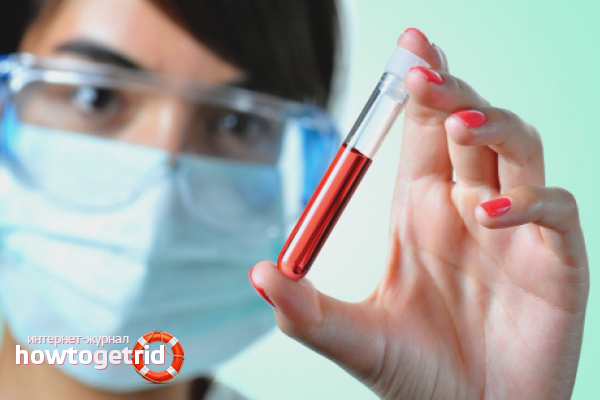
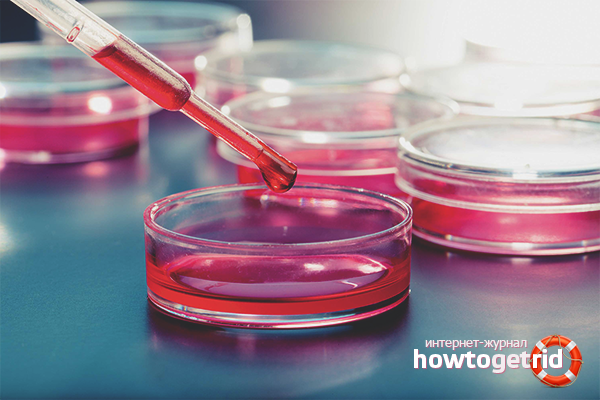

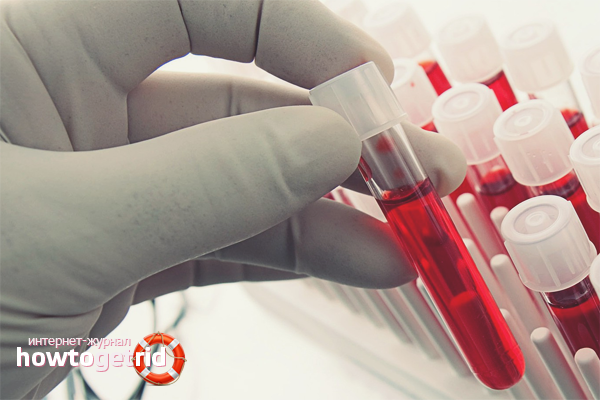
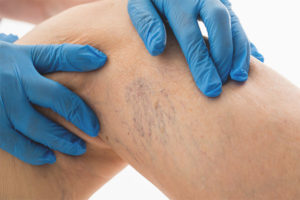

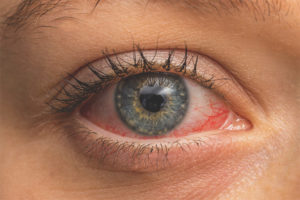


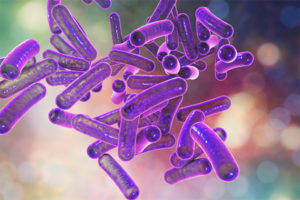
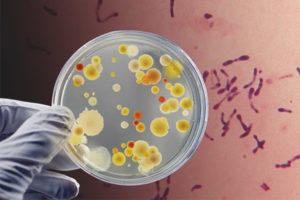

Submit